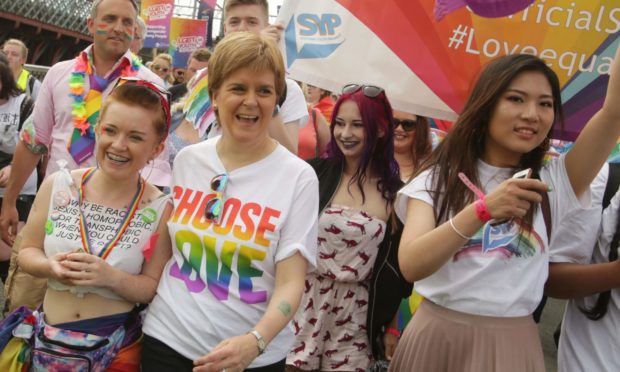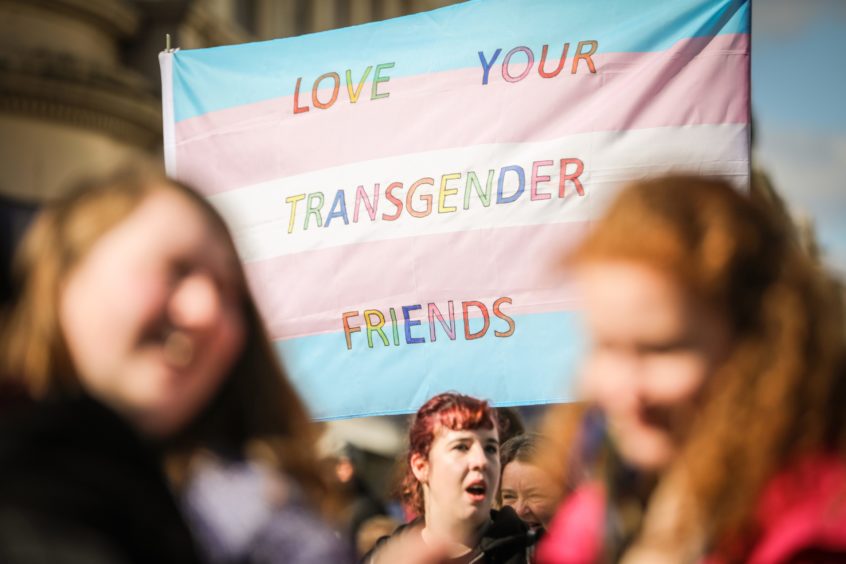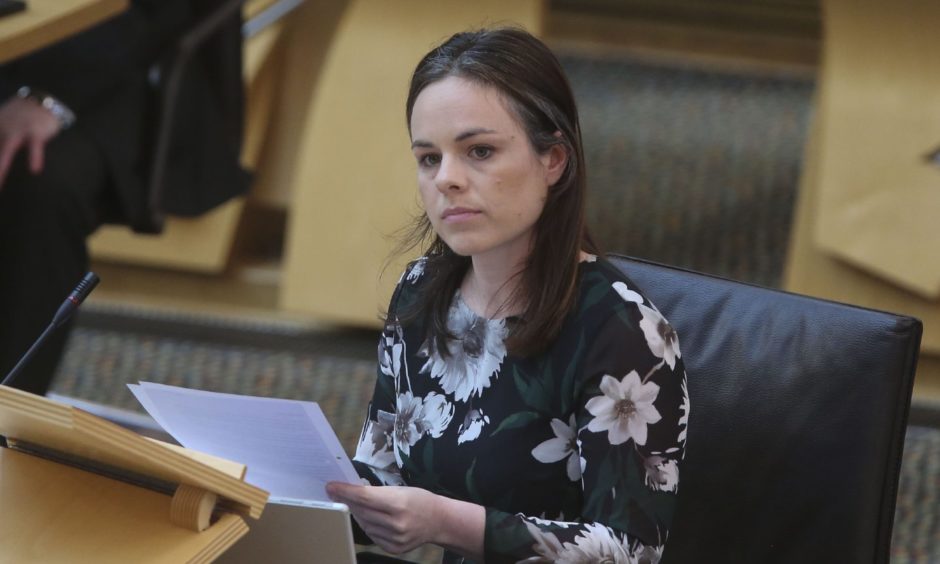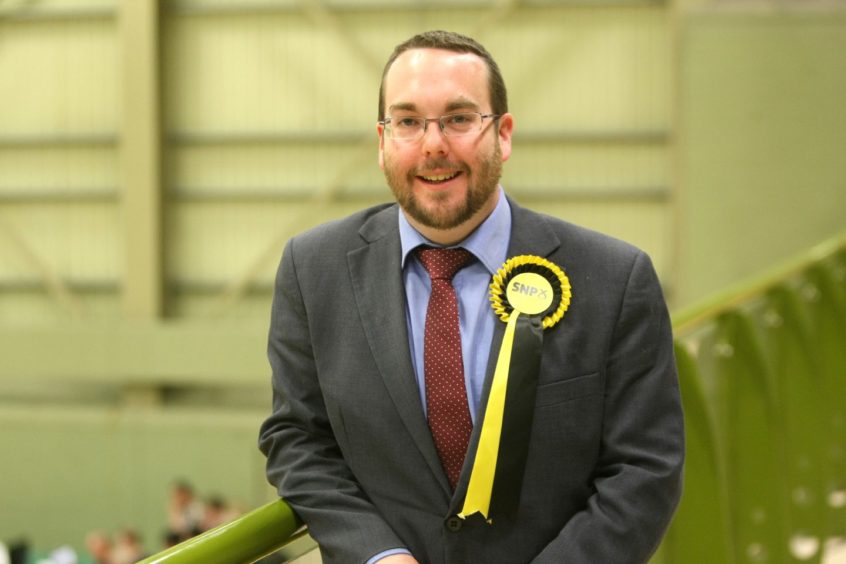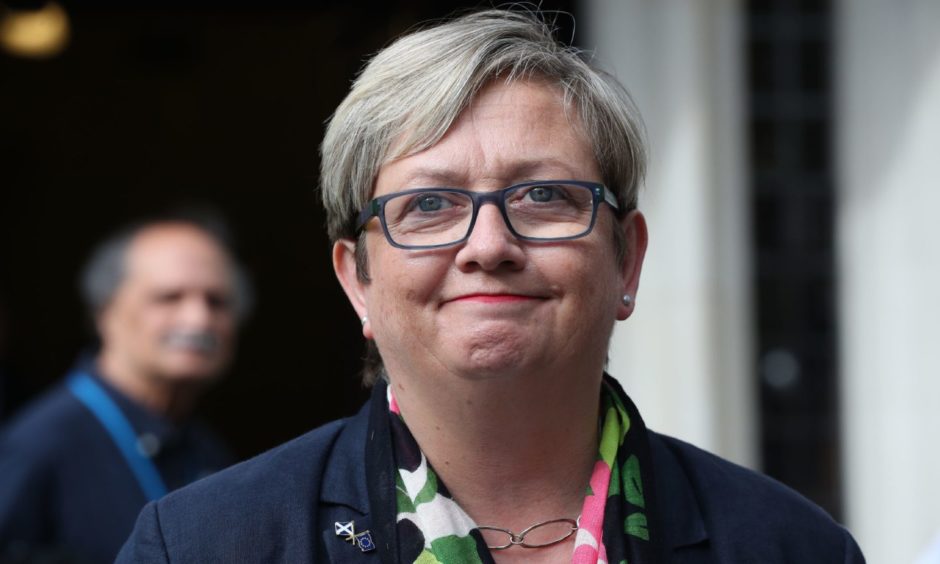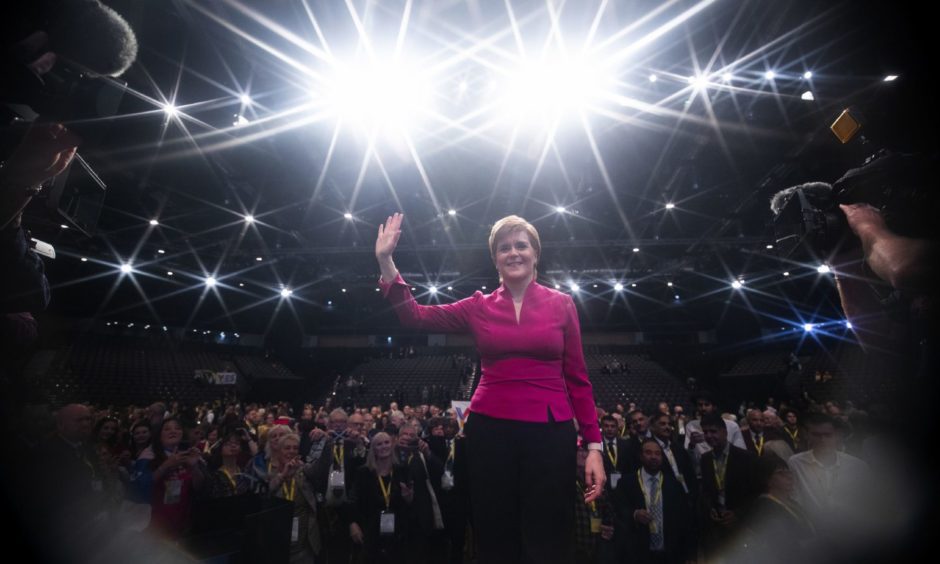Nicola Sturgeon has strongly condemned accusations of transphobia in the SNP and vowed to treat it with zero tolerance following reports of large numbers of young activists leaving the party over the issue.
In a video posted to social media late on Wednesday, Ms Sturgeon said silence is “not an option” but she has faced criticism for failing to speak out sooner amid months of infighting and a bitter row over controversial changes to the Gender Recognition Act.
The party has been embroiled in a deeply divisive debate over proposals to allow people to more easily change their legally recognised gender, and what impact that could have on women’s rights in a number of areas, such as health, education, sport and work.
The row has seen leading SNP figures accused of transphobia, and last week prominent equalities campaigner Teddy Hope quit the party and called for an independent inquiry, claiming it had become a “core hub for transphobia” in Scotland.
‘What you’re about to hear comes from my heart’
In an apparently unscripted video, Ms Sturgeon said she had heard reports of “mainly young people in significant numbers leaving the SNP” because they consider the party “not to be a safe, tolerant or welcoming place for trans people”.
A message from me as @thesnp leader on transphobia. pic.twitter.com/ewjM7xWLjG
— Nicola Sturgeon (@NicolaSturgeon) January 27, 2021
Ms Sturgeon said it “grieves her deeply” they had reached that conclusion and pledged to do “everything I can to change that impression and persuade all of you that the SNP is your party and that you should come home where you belong”.
The SNP leader acknowledged there was an ongoing debate on gender reform within the party but stressed that “no debate can be a cover for transphobia”.
“Trans people have as much right as any of us to be safe, secure and valued for who they are,” Ms Sturgeon said. “Transphobia is wrong and we must treat it with the zero tolerance we treat racism or homophobia with.”
Statement must be followed by action
The words have been welcomed by trans charities but campaigners have called on the first minister to back them up with action.
Alexandra Woolhouse, legal strategy coordinator at Mermaids UK, a charity that supports trans and non-binary young people and their families, said it is important that the first minister had “unequivocally” stated transphobia is wrong.
“It’s a really amazing step for a political leader to say that so publicly and proudly,” she said. “It really should affirm the rights of trans people in Scotland.
“It sets a precedent for other leaders to unequivocally say transphobia is wrong, that can only be a positive thing.”
Ms Woolhouse said it is important the statement is now backed up with campaigns and legislative action, and that the Gender Recognition Act “isn’t used to spout and reinforce transphobia in Scotland”.
A self-declaration model
The Scottish Government has been accused of backing away from supporting trans people after it announced work had been “paused” on the gender recognition proposals due to the coronavirus pandemic.
Ministers sought to move towards a “self-declaration model” where people would no longer need to be diagnosed with gender dysphoria or prove they had lived as their acquired gender for two years before having the change legally recognised.
But the plans sparked a backlash within the party, with 15 senior SNP politicians – including three cabinet ministers and Kate Forbes, now the finance secretary – writing an open letter to Nicola Sturgeon, urging her not to rush into the changes.
The letter argued any change to the definition of male and female is a “matter of profound significance” and hit out at the “knee-jerk accusations of transphobia” made against anyone raising concerns about the reforms.
However, questions have been raised about whether legitimate discussion over the Bill has crossed over into transphobia, particularly on social media, where the debate has often been at its most fiery.
Fierce criticism
Prominent figures such as MP Joanna Cherry, who was also a signatory to the letter, have come in for fierce criticism for their online comments and support of allegedly anti-trans campaigners.
The reported exodus of young activists from the SNP this week appears in part to have been sparked by a row over Ms Cherry’s defence of family law barrister Sarah Phillimore, who previously posted tweets some have described as anti-Semitic.
Ms Phillimore, who has been accused of transphobia by Out for Independence, the official LGBT wing of the SNP, saw her twitter account suspended after she was reprimanded for violating the social media platform’s rules on “hateful conduct”.
Your tweet is grossly defamatory & in breach of @theSNP code of conduct. I’ve reported it to the party’s National Secretary & he has promised me to take urgent action. Your attacks on a prominent party representative who is also a lesbian are disgraceful
— Joanna Cherry QC (@joannaccherry) January 26, 2021
Teddy Hope, a former trans officer for Out for Independence, complained of having to deal with transphobic abuse after being asked to attend a branch meeting last year to discuss trans rights and equalities.
The activist said comments about trans people being “predators and paedophiles” had been made by a group infiltrating the meeting, and part of the evening had to be brought to a close following heckles about men accessing women’s spaces.
Teddy claims issues of transphobia within the SNP have been swept under the carpet because people have been encouraged to stay “wheesht for indy” and focus instead on Scottish independence.
Accusations of transphobia
Emma Cuthbertson, a former Women’s Officer in the party’s Motherwell and Wishaw branch, spoke last year of how she feared almost daily for her safety and was the victim of attacks by councillors, MSPs, MPs and party members due to her being trans.
Ms Cuthbertson claimed more than 20 complaints were ignored by party bosses before she quit in March, and accused senior figures of treating the abuse of trans people as “acceptable collateral damage to maintain party unity”.
The same day Lee Martin, another prominent SNP activist, left the party, citing the toll of the growing row over proposed reforms to the Gender Recognition Act, and Anniesland SNP councillor Elspeth Kerr stated she had also suffered abuse.
Dundee councillor Gregor Murray, who is the only elected trans official in Scotland, left the SNP in 2019 after accusing the party of institutional transphobia.
The former children and families services convener had been suspended from the council over a series of online outbursts targeted at opponents of gender recognition reform, and claimed to no longer feel “welcome or safe” within the SNP.
Reports of abuse have flowed both ways and the split at the heart of the SNP risked collapsing into a chasm just hours before the final day of the party’s conference last year as prominent MP Joanna Cherry publicly pleaded with Nicola Sturgeon to call out out a “campaign of abuse, smears and violent intimidation” against her.
Ms Cherry, one of the party’s most senior figures at Westminster, said she had repeatedly made attempts to raise concerns internally “to no avail” and claimed figures close to fellow SNP MP Alyn Smith were involved.
Mr Smith did not respond to the allegations but Ms Cherry called on Ms Sturgeon directly “to do something or at the very least acknowledge the problem I face”.
Unfortunately this problem started close to home & continues led by a number of actors some of whom are @theSNP members & close to Mr Smith. Despite my complaints indeed pleas for help nothing has been done to address this issue
— Joanna Cherry QC (@joannaccherry) November 30, 2020
She said she had frequently been sent a “violent image” of a cartoon figure pointing a gun with the message to shut up, and had suffered a “campaign of intimidation”, including what Police Scotland and the Met considered a credible death threat.
Tensions were increased further after she claimed to have been frozen out of a meeting of the party’s national executive to discuss her bid to become an MSP by Ms Sturgeon – something the first minister’s spokesman has denied.
In her video, Ms Sturgeon appeared to tackle the division head on as she called for members to respect each other regardless of where they stand on the debate.
She said: “Yes, we have differences of opinion on gender recognition reform. We should debate them openly and respectfully. But no debate can be a cover for transphobia.
“Trans people have as much right as any of us to be safe, secure and valued for who they are. Transphobia is wrong and we must treat it with the zero tolerance we treat racism or homophobia.”
Expulsion ‘always an option’
Speaking on BBC Good Morning Scotland on Thursday, SNP deputy Westminster leader Kirsten Oswald said expulsion “is always an option” for disciplinary issues, including for members who are transphobic.
She said: “If people have concerns that somebody is transphobic then certainly they should make these concerns known to the national secretary, who would be the right person to look at that.
“But it’s not something that’s all right, it’s not something that is acceptable, so we can’t have that situation within the party.”
